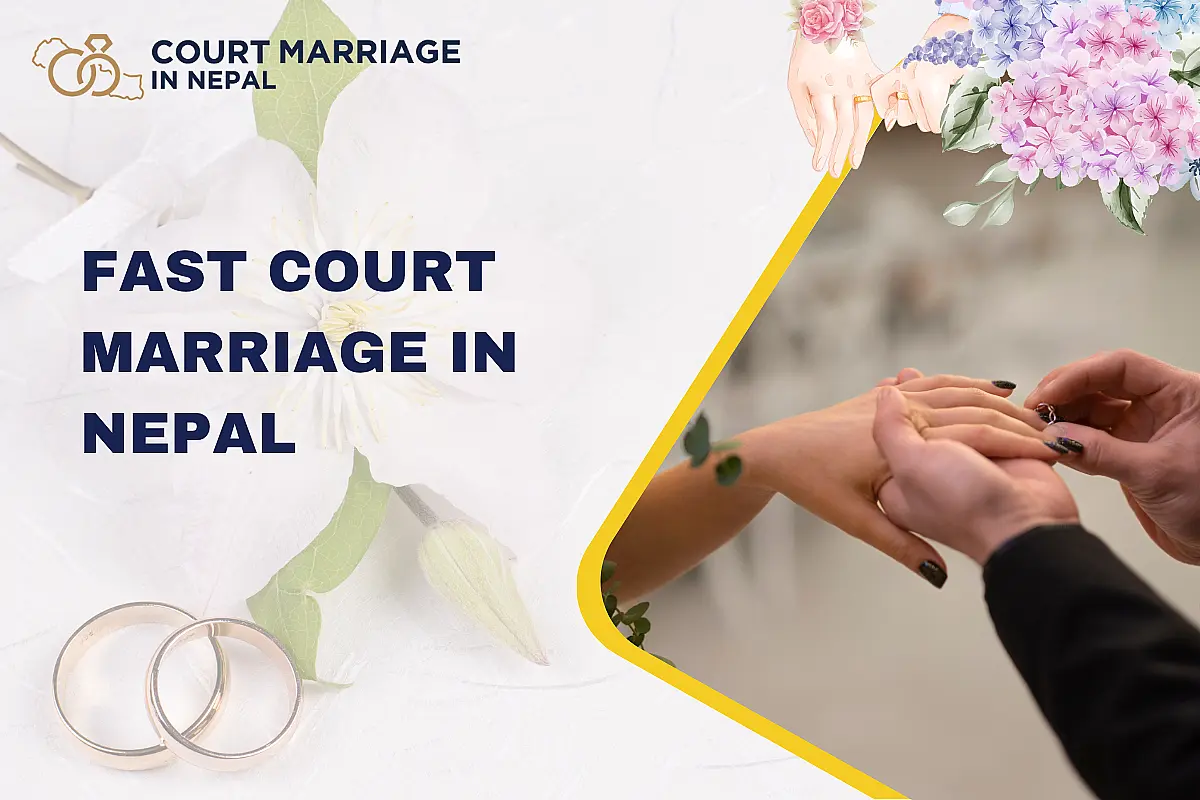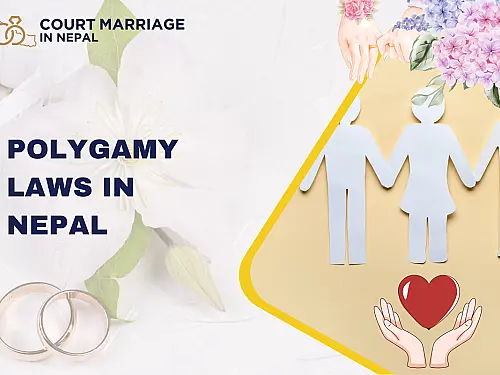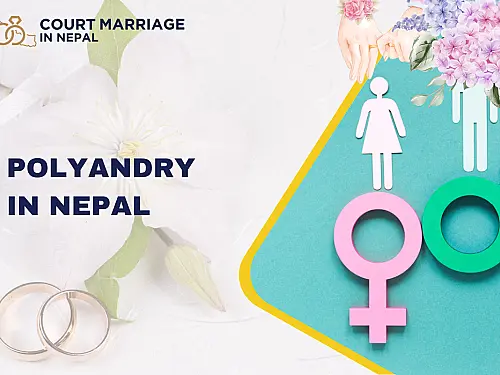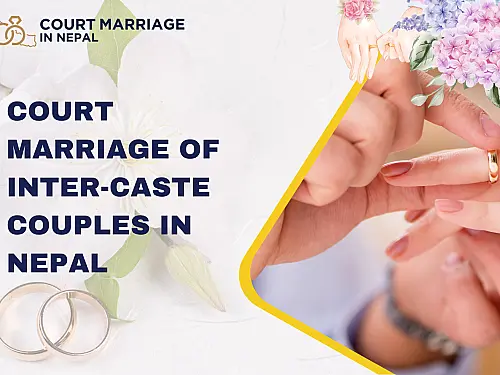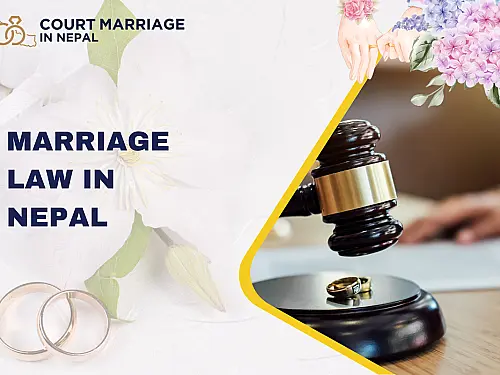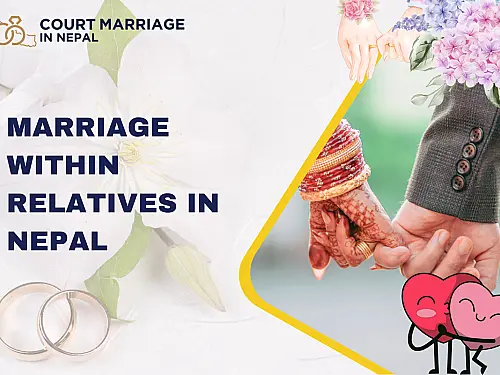Table of Contents
Introduction
In Nepal, court marriage provides a legitimate and efficient option for couples opting out of traditional or religious wedding ceremonies. This choice is particularly beneficial for individuals seeking to evade societal limitations, like caste bias, religious disparities, or absence of family approval. It offers a neutral, legal route to establish a union, prioritizing personal preference over traditional norms.
A primary reason why couples choose court marriage is the quickness and straightforwardness of the procedure. In contrast to conventional ceremonies that often include complex rituals and social duties, court marriage emphasizes meeting legal obligations swiftly and economically.
This blog intends to provide a practical, step-by-step guide on how couples can effectively carry out a quick court marriage in Nepal. It will address vital elements like necessary paperwork, the application process, significant legal stipulations, and frequent errors that may result in delays. The objective is to assist couples in comprehending the process thoroughly and preventing unnecessary difficulties, ensuring the experience is seamless and legally protected.
Court Marriage in Nepal
Court marriage in Nepal denotes a formal legal process that allows two consenting adults to marry directly according to the law, bypassing traditional, religious, or community rituals. It occurs before a judge at the District Court and is regulated by the National Civil Code, 2074. This form of marriage is appropriate for partners seeking to guarantee their bond is legally recognized, particularly in situations involving inter-caste, inter-religious, or international relationships, or when there is a lack of approval from parents or society.
Court marriage is important because it is legally enforceable and recognized officially, both in Nepal and globally.
A formal court marriage offers couples the necessary legal documents for numerous rights and services, such as citizenship applications, spousal visas, property entitlements, inheritance claims, and legal safeguards during separation or disputes. In summary, court marriage guarantees that the relationship is not just personal and emotional but also legally binding and safeguarded. In Nepal, court marriage is available to couples who fulfill certain legal criteria, guaranteeing that their union is legitimate, consensual, and adheres to national regulations. The eligibility requirements aim to safeguard the rights of individuals while ensuring the integrity of the legal marriage procedure.
Eligibility for Court Marriage in Nepal
- Age and Cognitive Ability: Both persons must be a minimum of 20 years old and mentally stable. This indicates they have to be legally acknowledged adults who can comprehend the duties and repercussions of marriage. Mental clarity guarantees that both individuals are entering the marriage with complete understanding and purpose.
- Marital Situation: Both parties must not be married to anyone else at this time. If someone has been married before, they need to present legal documentation of their divorce or their spouse's death to qualify for a new marriage. This regulation aids in stopping bigamy, a crime in Nepal.
- No Forbidden Blood Relationship: According to Nepalese law, the couple must not have close blood relations, such as siblings, first cousins, or uncle-niece. This rule is in place to restrict consanguineous unions due to genetic, cultural, and social factors.
- Consent that is freely given and voluntary: Both individuals must willingly enter the marriage, free from pressure, manipulation, or excessive influence. Mutual agreement is a fundamental principle of court marriage. If one party is coerced or influenced, the marriage may subsequently be deemed invalid.
Court marriage in Nepal is accessible to consenting adults who are legally qualified, not currently married, not closely related, and fully understand their choice. These requirements help guarantee that the marriage is not just legal but also morally and socially acceptable.
Documents Required for Fast Court Marriage
For an efficient court marriage in Nepal, it's important to have all legal documents ready beforehand. The stipulations guarantee that the marriage is legitimate and confirmed by the officials.
- Application Form: This is the official request for marriage registration, obtainable at the District Court.
- Citizenship Certificates: Both individuals are required to provide original and copies of their Nepali citizenship certificates.
- Unmarried or Divorce Certificate: If the applicant has not been married before, a single status certificate from the local ward is required. If previously married, a copy of the divorce decree or death certificate (if widowed) needs to be provided.
- Passport-Sized Photos: Four recent pictures of each partner are required for identification and documentation purposes.
- Ward Office Requirement: A document from your local Ward Office confirming your marital status single, divorced, or widowed is essential.
- Witness Documentation: Two witnesses are needed. Original citizenship certificates must be presented to confirm identity and facilitate the marriage process.
For non-Citizens:
- Authentic Passport and Visa: These establish identity and lawful presence in Nepal.
- No Objection Letter: This document from the embassy of the foreign national verifies that there are no legal impediments to marriage.
- Proof of Stay: This can consist of an arrival stamp, visa copy, or documents from your hotel stay.
Step-by-Step Process for Fast Court Marriage
- Step 1: Get Documents Ready Ahead of Time
Make sure to gather and photocopy all necessary documents. To save time, go to the Ward Office early (ideally in the morning) to obtain the marital status recommendation. - Step 2: File Application at District Court
Visit the Marriage Registration Department of the District Court alongside your partner and witnesses. Provide the form and paperwork, and finalize the affidavit declaration confirming the consent and eligibility of both parties. - Step 3: Hearing by the Judge
A short meeting takes place where the judge checks the paperwork and requests both parties and witnesses to affirm their desire to marry. This stage guarantees that the procedure is open and done willingly. - Step 4: Registering Marriage and Obtaining Certificate
After verification, the court officially records the marriage and provides a Marriage Certificate, typically on the same day or within 1–3 business days, depending on the court's capacity.
Tips for a Faster Process
- Get there early: Arrive at the court by 10 AM
Getting there early ideally before 10 AM is vital for steering clear of lengthy lines and avoidable delays at the District Court. Arriving early provides you with a benefit:- You could be one of the first to send in your application and materials.
- You minimize the likelihood of delays caused by restricted daily case handling.
- If any document is absent or requires adjustment, you'll have the opportunity to rectify it on that very day.
- Arriving early guarantees a smooth start to your process and boosts the chances of finishing the registration on the same day.
- Steer Clear of Holidays: Only Go on Weekdays
Court offices are closed on Saturdays and public holidays. To avoid congestion:- Visit during a normal workday (Sunday to Friday).
- Verify national holidays or local shutdowns prior to scheduling your visit.
- Spare Copies: Retain Photocopies of Papers and Additional Images
To prevent hasty cramming:- Bring a minimum of 2–3 photocopies of every document.
- Retain additional passport-sized photos (over 4) as a backup.
- Witness Preparedness: Ensure Witnesses Are Present with Authentic Citizenship
To ensure the process is valid:- Witnesses must be in person at the court for both the application and the hearing.
- They need to present their original citizenship certificates.
- The court may request verbal assurance in front of the judge.
Advantages of Fast Court Marriage
- Efficiency and affordability: In contrast to traditional weddings, court marriage is straightforward and direct. This is particularly beneficial for young couples or individuals who desire a peaceful, cost-effective beginning to their married life.
- Neutral and inclusive nature: Ideal for couples from diverse backgrounds be it inter-caste, interfaith, or from various nations. It allows them the liberty to define their relationship on their own terms.
- Legal protection: Both partners enjoy distinct rights and protections under the law, encompassing property, inheritance, medical decisions, and international travel documentation.
Conclusion
Quick court marriage in Nepal is a contemporary and effective option to conventional wedding rituals. Many couples view it as a wise option due to its blend of simplicity, legality, and expeditiousness. If you want to escape the demands of societal norms, require a legitimate marriage certificate promptly for legal reasons (like visa, immigration, or citizenship), or favor a more discreet and practical method, court marriage provides a dependable and legally recognized option.
This method is particularly attractive for couples of different castes, religions, or nationalities, since it avoids the challenges that may come from societal expectations, religious contrasts, or family disapproval. It guarantees that the marriage is safeguarded by Nepalese law from the beginning, providing both partners with equal legal rights and obligations.
The essential factor for a seamless experience is careful preparation. Possessing the correct documents like citizenship certificates, ward endorsements, and witness statements can streamline the procedure, frequently allowing it to be finished in a day or two at the District Court. Essentially, quick court marriage revolves around more than just swiftness; it's about embarking on a marital life with legal certainty, fairness, and independence, while steering clear of needless hold-ups or conflicts.
Frequently Asked Questions
At Court Marriage In Nepal, a registered law firm operating as Court Marriage In Nepal Pvt. Ltd., we specialize exclusively in Court Marriage Nepal. As the first law firm in Nepal dedicated to court marriage services, we assist both Nepali citizens and foreign nationals with the court marriage registration process in Nepal, including complete legal support for court marriage registration for foreign citizens in Nepal. As a trusted marriage firm in Nepal and a licensed law firm in Nepal, we ensure a smooth, lawful, and stress-free experience. Contact us today for confidential assistance with court marriage registration in Nepal.

